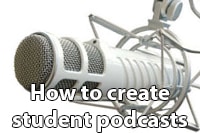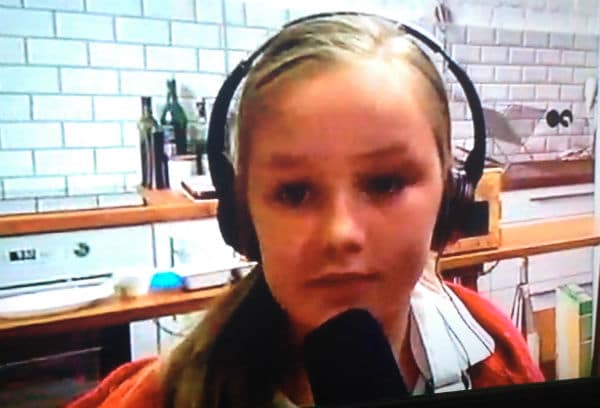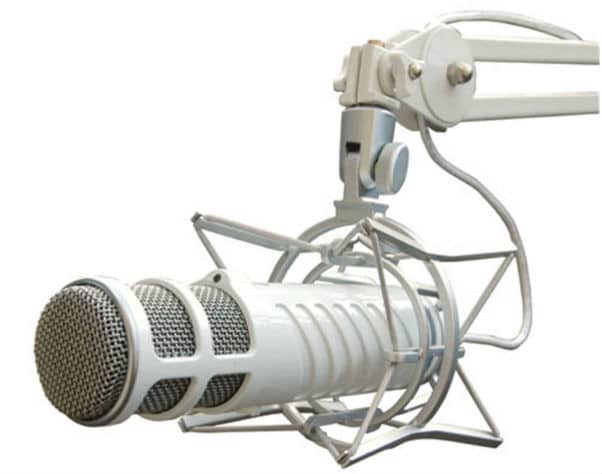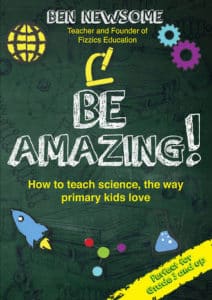
Going live!
Podcasting also offers yet another opportunity for your students to engage with their world digitally. Armed with a microphone and a recording device, your students could be sharing their ideas and insights gained as they conduct science at your school and beyond! The content they could produce doesn’t need to be groundbreaking nor something required for student assessments, it just needs to be engaging for the intended audience and motivating for your students to put together.
Benefits of student podcasting
- Podcasting is perfect for teaching students to use multimedia as well as to build their confidence as a digital native.
- Student podcasting requires kids to conceive original ideas and plan their implementation using a variety of digital tools to a deadline (eg Trello and Slack). This is very much a skill used in every modern business and organisation!
- It’s a fantastic preparation for students wishing to enter science communication.
- A student podcast can showcase the great work your school does. It could become a regular feed for families to listen to each week!
- Podcasting is a fantastic medium to teach teamwork! Whilst some students can be the vocal talent, other students can be involved in creating each episode’s artwork, others can edit and pull together sound bites in post-production, plus other students can be tasked with creating a student blog for you to potentially share on a social media site approved by your school administration (eg. Pinterest or Instagram).
- Above all, many students enjoy the challenge and the audio platform to share their ideas.
Which topics could students podcast about?

It’s all about the students!
So you’re considering putting together a classroom podcast… now is the time to think about the central mission of the production! Firstly, this is the chance for your students to produce a show that reflects their interests. Perhaps this is the time to brainstorm with your students and find out what they want to do? What is important is that the content of each episode is compelling for the listener! With this in mind, include in your brainstorm a target audience on whether the preferred listeners are students, parents, teachers or the general public.
Here are just a few ideas for some student-led episodes that they could produce:
- Perhaps students could interview visiting scientists during science week celebrations?
- Staying on science events, perhaps students could interview visits to your school science fair?
- Your students could interview other students whilst they set up, conduct and then report on science experiments in the classroom. Maybe they have been using 3D printers or Lego robotics? Are there interesting student designs being made in your maker space?
- Maybe your students have been involved in a citizen science project? Maybe your students could review a book or science publication?
- Maybe your students could run spotlight sessions on the teachers and assistants at your school? The other students might find it interesting to find out what makes teachers tick and it could provide a new perspective on why education is so important.
- Your students could record bird calls, frog croaks and other sounds whilst on a bushwalk. This would make an interesting audio environment as it would take the listener to the wilderness they were observing.
- Is there an upcoming event or recent news that’s interesting to report upon? This can be a source for a wide variety of ideas as it could include lunar eclipses, a passing meteor shower, an erupting volcano, a medical discovery or awesome invention. Maybe this could be a regular segment of your school podcast?
- Listen to other STEM podcasts for inspiration! Here is a list of a number of popular STEM podcasts that we listen to, plus you could also check out the variety of topics we’ve covered on the FizzicsEd podcast.
Which format will suit your school?
Like the topic area, the format of your podcast is very much dependent on what audio is being recorded and your overall mission. Still, there are a few podcast formats that are quite common:
- Is your school podcast going to be a series of interviews? This is a great format for bringing in a subject matter expert or focussing on a particular person’s achievements or perspectives. The format for this type of podcast tends to be as follows:
Introduction > Transition > Interview > Transition > Summary > Outro
- Do your students want to do a series of solo podcasts? This format suits those students who simply want a platform to share their ideas.
Introduction > Transition > Topic A > Transition > Topic B > Summary > Outro
- Perhaps your students want to record an ongoing group discussion? Similar to a talk show, a possible format for this could be:
Introduction > Transition > Catch up > Transition > Topic A> Transition > Topic B > Summary > Outro
- Mix it up! Maybe you could have a variety of different segments and have it act more like an audio magazine? You could include listener feedback from email or social comments… the world is your student’s oyster.
No matter which format your students intend on producing, its worth considering how often will your school produce the podcast? Pulling together your show can be quite demanding if there are a lot of elements – perhaps this could be a monthly affair? Of course, you could assign this as a weekly task if your students want to take up the challenge.
By the way, your podcast doesn’t need to be 30 minutes long. It could even be a short 2-minute segment! Put simply, it just needs to be as long as it needs to be.
Which podcast equipment will you need?
This does not need to be as demanding as you might think.
The simplest and cheapest option
Use the voice recorder from a smartphone or built-in microphone on your computer or tablet. The only issue with this is that the sound quality will be poorer than dedicated microphones built for a purpose. From there you can use free software such as Garageband (Mac) or Audacity (PC) and host your podcast files on free platforms such as Podbean or Soundcloud. You cannot post directly to iTunes, however, Podbean can get the files across for you via an RSS feed.
Going a little further
The following list is for student podcasters wanting a better sound and more options for post-production and distribution
- A microphone such as a Zoom H2N, Rode Podcaster or Blue Yeti. There are plenty of other microphones suitable for podcasting, just be sure to purchase one that has a pop-filter and noise-cancelling where possible.

The Rode Podcaster microphone mounted on a shock mount and attached to a boom arm. - Skype or Zoom web conference recording software for remote guests.
- A computer with a quiet fan.
- You can use free software such as Garageband (Mac) or Audacity (PC) or a tool such as SoundTrap
- A premium podcast hosting service such as Omny or Speaker. We use Omny, as not only is it is easy to use but it also produces a handy embed code to be able to share the FizzicsEd podcast episodes easily onto our website.
No matter which equipment you choose, you need to record your audio files in a location where the recording will not be affected by outside noise. Not everyone has a noise-proof room, however, if you record in a small room with heavy drapes and lots of soft furnishings that dampen echoing you can get very close to the environment needed for professional recordings.
Important: If you choose to use music or other sound files to support your podcast… don’t use copyrighted material without permission! It is far better to create your own music or effects anyway and it also teaches your students to respect ownership.
Extra podcasting tips
- The students may want to get rid of filler words such as ‘um’ and ‘ah’, however, I prefer to keep these in as it makes your audio sound more authentic and less overly-produced.
- For your introductions, it is best to keep these to less than 3 minutes as that way you can get to the main content quickly.
- It’s worth creating a ‘run sheet’ whereby the students note the section of the podcast and its associated mp3 file name. If they include short descriptions of each section it’ll help them write show notes and blog articles more effectively as well.
- Just start! Nothing is going to be perfect in your first few episodes anyway. Encourage students to simply create episodes that are useful for their intended listener… perfection can come later 🙂
Once your students have created their first episode in no time they’ll be sharing their thoughts to the world!
Happy teaching,
NEW Primary science teaching book!
“Be Amazing! How to teach science, the way primary kids love”
Want more ideas for teaching science?
Subscribe to the FizzicsEd Podcast!





























Comments